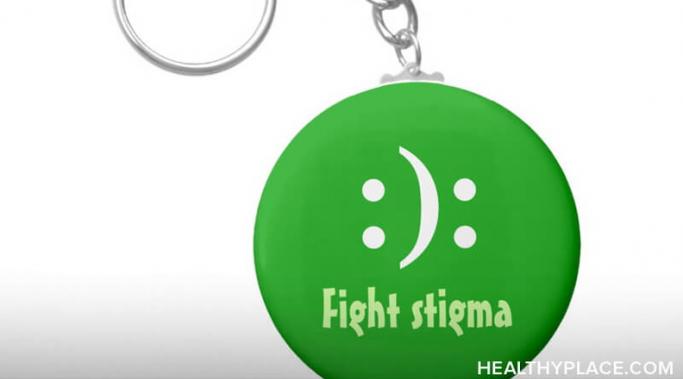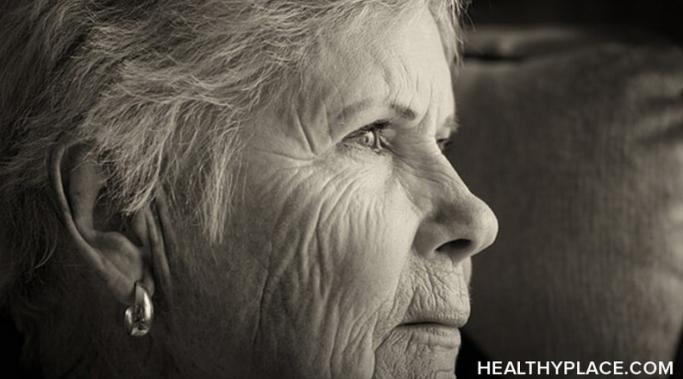Next week is Mental Illness Awareness Week in Canada and the US. It's our week to get out, speak up and be heard. It's our week not to be ashamed of our illness or the illness of our loved ones. It's our week to march, write, Twitter, Facebook, talk and tell politicians how important issues of mental illness are.
But what if you don't want the world knowing you have a mental illness?
Understanding Mental Illness
How are you?
This is one of the most disingenuous, lie-provoking, overused sentences in the English language. How are you? We say it to fill time and pretend that we care about people whom we obviously don't.
As no one is interested in actually knowing the answer, I have a series of pat answers I typically give. Snazzy. Fabulous. Wonderful. Delightful. Sparkly. Peaches and cream. You?
But the truth of the matter is, when someone asks how I am, even if they really wanted to know, it would make no difference, because really, I have no idea.
It is often the case that those around a person with bipolar disorder spot the disorder before the person themselves does. That’s pretty understandable as our actions are always louder from the outside. Not to mention our brain, which is supposed to be paying attention to our behaviors, is the thing that’s sick. So, you know, we miss stuff. Crazy tends to obscure reality.
But what if you think a person has bipolar disorder and the person won’t listen? In this case, there are really only three things you can do.
Kate White, our anxiety blogger here at HealthyPlace asked the question: what does a mental illness feel like? Well, that's a big question. I've been writing for years to answer it. In today's bipolar video though, I expose one facet of crazy that really ruins my day.
One night in 2007, I started a new antipsychotic. It was to be taken at dinner time. I did as told and took it at the universal dinner time of 6 pm.
By 7 pm, I had mostly lost touch with reality. I was suddenly so tired that my eyes wouldn’t open but I was far too anxious, scared and twitchy to go to sleep. I felt incredibly ill. I was frantic, terrified and panicked. I was thrashing in a sharp, steel cage between sleep and wake with no way out. I cannot express to you the horror of that night.
Bipolar medication side effects suck.
We're all different. There is something fundamentally true about this statement. Red hair, black hair, blue eyes, brown eyes, cat lover, dog lover - see, all different and most of us are mature enough to think that's OK.
But with bipolar, our symptoms vary wildly and for reason, people don't think that's OK.
Ah myths, we love them, don’t we? Friday the 13th is unlucky, Canadians live in igloos and drinking Coke and eating Pop Rocks will make your stomach explode. (Your stomach might not, but your pancreas is another matter.) People buy into myths all the time. When enough people say them, especially if the people are holding microphones or best-selling books, people assume they must be true.
But as a good friend of mine always says, trust, but verify.
I feel, sometimes, that I am at war with the mentally-well world. This isn’t to say that many of them aren’t lovely or that I have a desire to harm anyone, but I do feel embroiled. And it’s mostly because the well population just doesn’t understand what it is to be unwell. They demonstrate this heartily by repeatedly saying the worst things possible to a person with a mental illness.
Recently I was contacted by someone (let’s call her Ms. X) who wanted to end a friendship with a bipolar person and asked me how to do it with the least harm possible. I talked with Ms. X and it appears that her bipolar friend had been doing some very hurtful things. I asked Ms. X if she had talked to her friend about these things. Ms. X said that no, she hadn’t.
So why is terminating a friendship preferable to talking about the problem?
The concept that people need to be grateful for the good things in life has been around probably forever. It’s a form of positivity. Rather than being upset you don’t have the Ferrari the guy next door has, be grateful that you have a Volvo in which to take your kids to school. Seems reasonable enough.
And the movement of gratitude leading to emotional wellness really hit its stride when Oprah started promoting the “gratitude journal”. Basically you write down what you’re grateful for every day and then, “you'll become a deliberate attractor of positive vibrations”. In Oprah’s case, I’m guessing that’s one really fat journal, and apparently lots of vibrations.
But gratitude has no bearing on how depressed I am.






